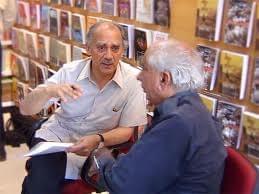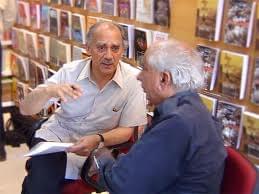Commentary
Building a Conservative Movement II: A Few Clarifications
Dilip Rao
Jun 18, 2011, 11:26 AM | Updated May 02, 2016, 04:12 PM IST
Save & read from anywhere!
Bookmark stories for easy access on any device or the Swarajya app.


This is a follow up to my earlier post where I will try to take forward the debate about the ideological framework of a future conservative movement. There, some objections were raised in the comments section which I will attempt to address here.
Sidd@ma_falesu is right that the word “traditionalist” is a misnomer because the Sangh cannot be said to be truly traditionalist. I concede the point: it was used for lack of a better way to describe folks who are generally uncomfortable with social change and the liberal paradigm.
His second contention was that the Sangh has always been inclined towards socialism. My own view is that the Sangh has not had a consistent economic perspective. It has adopted various themes from the nationalist discourse at different points of time but has not evolved any of them into a unique and comprehensive theme. Also, it has allowed pragmatic considerations to guide economic policy whenever the party it supported came to power rather than insist on having its way. It has argued for indigenization but has not seriously tried to insist on boycotting all foreign goods or banning imports. A major concern of the Sangh is the interest of the Hindu samaj and if there are alternative ways to promote it (as I will attempt to put forth in later posts), I do not think they will necessarily be averse to the idea.
I will not go into the issue of secularism here (which has to be dealt with separately altogether) but regarding his last point, times have changed considerably and the libertarian movement may well become a force to reckon with in the years to come. As for property rights, we have come at least half a circle – from loss of the right to property in the 44th amendment to the present push to amend the Land Acquisition Act, 1894 to restrict eminent domain. How strong an ally libertarians will make for Hindu nationalists has to be seen relative to their proximity to left liberals which is not something they are comfortable with either. In contrast to the Left which already has worked out its positions on most issues that matter to libertarians, the agenda of the Right is still a work in progress which leaves room for flexibility. Assuming they will be a force to reckon with in the future and given the uniqueness of their perspective, they can make a meaningful contribution to the movement. The objective is not to hunt for the strongest available allies of a particular group but to create an alternative paradigm that is sufficiently broad based to be able to accommodate multiple schools of thought within its umbrella. I do not dispute that the final product must be a homemade brew but we can surely borrow some ingredients from others who have successfully prepared their own recipes.
Amar@amargov argues that traditionalists must affirm their commitment to social transformation. This is a contradiction in terms – traditionalists are called so because they do not want transformation; if they accepted change, they would no longer qualify for the label. He argues that social reform measures ought to be embraced even if they are western values and social realities cannot lead us away from the genuine need for reform. Read on for my explanation.
Societies inevitably change over time. A basic conservative value is not that change can be prevented but a healthy skepticism is necesssary in dealing with claims that it will necessarily lead, in totality, to a better future. “Progress” can sometimes simply be a euphemism for exchanging one set of problems with another. Hence, the issue is not whether change itself is or is not desirable but what the role of the state in that process is or ought to be.
The government establishment and the left have long aimed at a top-down approach where state institutions are first “captured” and certain measures involving mostly coercion but occasionally accompanied by tax-payer funded incentives – are adopted which are then passed down the hierarchy and thrust upon the populace to varying degrees – depending on how serious implementation efforts are, how much funding is available, how difficult the problem is, etc. Two pertinent questions would be whether (a) these state sponsored efforts actually lead to or hasten the desired transformation and (b) the loss of individual freedom that state coercion entails and the socio-economic cost of the effort makes it worthwhile. There is generally little evidence to support a positive response to the first question which means that a conservative would likely answer the second with a no. I can cite many social laws in support of this. I quote from an earlier post:
For example, the Child Marriage Restraint Act, 1978 has not had much impact on child marriages, the PNDT Act, 1994 with all its subsequent amendments has not had much success with ending female feticide, kidney rackets continue notwithstanding the Human Organ Transplantation Act, 1994 and commercial sex thrives despite the Immoral Traffic Act, 1956. All of these [laws] impinge on important [individual] concerns – the freedom to marry, reproduce, prolong one’s life, seek sexual gratification, the right to privacy in matters of one’s own health care and reproductive choices, etc… The main result of the threat of legal action has not been to abolish these acts but to drive them and the associated actors underground.
Given this reality, on balance, how much of a justification exists to keep any of these and other such laws on the books or to come up with similar ones in the future? Amar argues that a legislation cannot be insulated against the possibility of unintended consequences. True enough but all law making involves cost-benefit appraisals and it is difficult to support such legislation howsoever noble the intent. As well all know, it is the very same argument being made with respect to the Jan Lokpal and Communal violence bills too – It cannot be anyone’s case that corruption should not be tackled or that minorities should not be protected against violence. Society has no way of guarding against such abuse nor can the traditionalist ‘improve’ it for it is often directed against him/her and any attempts to change it will invite suspicion of the powers that be together with the charge of attempting to dilute it.
In future posts, I hope to explore ways to fuse multiple strands of thought on the Right on particular issues into a common narrative. Meanwhile, it would help if someone could enlighten me where the “liberal nationalists” stand with respect to the state’s role in social matters.





